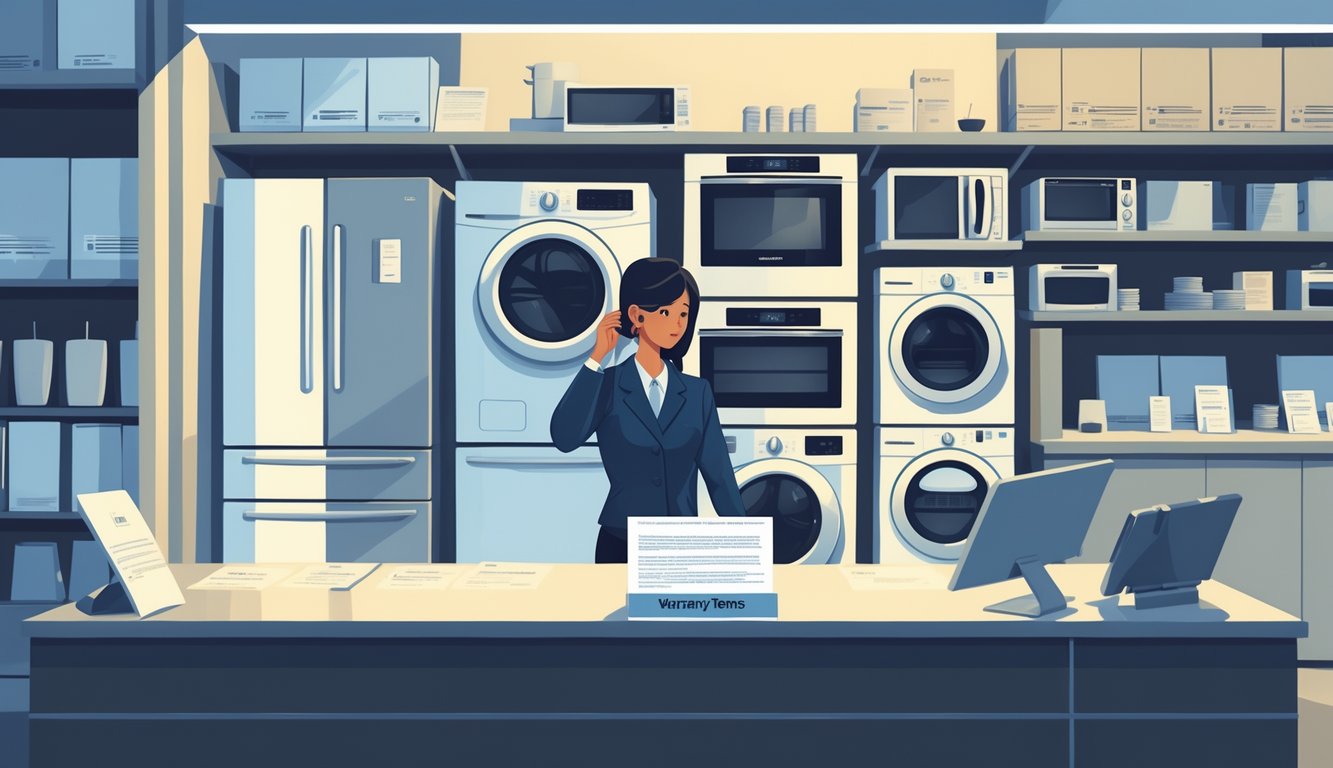
Maximizing Warranty Benefits on New Appliances
You buy new, you get a blizzard of sign-up cards, QR codes, emails—half the time I skip them. Big mistake. Unregistered? You’re out of luck for the extras. Warranty Week (2024) found over 30% of claims denied because people forgot or delayed registration. That little checkmark on day one? Can save you months of misery.
And don’t get me started on “extended warranty” upsells. They’re always pushed at checkout, sometimes through random companies like SquareTrade or Asurion. Sometimes they help, but usually they just cover “mechanical failure”—not spills, not power surges. Nobody ever says if you have to call an “authorized” tech within a certain number of days.
I take photos of the receipt, serial number, and box—twice now, that’s saved me when support wanted “proof.” I always ask the manager what paperwork I need up front. That little step has turned a “denied” into an “approved” for me more than once. I check that before I even plug the thing in now. Learned the hard way.
Frequently Asked Questions
Trying to figure out appliance warranties? It’s like playing a game you’re supposed to lose—loopholes, exclusions, “lost your paperwork,” all of it. I’ve read so many warranty docs and customer service scripts, I think my brain melted. Here’s what I’ve managed to piece together (don’t expect all the answers).
What are some common limitations in appliance warranties that retailers don’t disclose?
Nobody warns you that “accidental damage” voids almost everything unless you pay extra. My toaster oven fizzled out—“normal wear and tear” apparently isn’t covered. Forbes Home says even cheap stuff (microwaves, $50 coffee makers) hides exclusions that show up only after you buy, and repairs are always “not covered.”
They love “cosmetic damage,” “unauthorized repairs,” and “Acts of God” (which, honestly, what does that even mean?). Legal lines like “commercial use” kill coverage, but nobody at checkout ever mentions it. And why does everyone forget to ask about parts vs. labor until it’s too late?
How can consumers find out about the fine print in appliance warranty agreements?
Digging through “fine print” is like looking for that one missing sock—boring, but you have to do it. Manufacturer sites sometimes have PDFs, but there are so many pop-ups and registration hoops, I usually give up. Serial numbers matter more than receipts, apparently.
Most “extended warranty” contracts show up after you pay (Myth #2, in Busting Appliance Warranty Myths), so now I insist on seeing the actual contract first. Small claims court cases often hinge on whether you kept a crumpled slip from two years ago. One customer service rep admitted only the “escalation team” knows what’s really covered. Comforting.
What steps should you take if a retailer isn’t honoring an appliance warranty?
You start polite (“Hi, my dishwasher is leaking…”), but you’ll end up escalating. Save every email, every receipt—somebody will always ask for “proof.” I’ve sent written demand letters quoting the Magnuson-Moss Act (or just tweeted at the brand—sometimes that works faster).
Weirdly, state attorney general complaints sometimes get results faster than months of calls. If you say “implied warranty of merchantability,” managers suddenly want to help, but don’t expect miracles. Filing with the BBB? Sometimes it works, sometimes it just feels good to vent.
Is a consumer entitled to any warranty protection when an appliance doesn’t come with a written warranty?
Magnuson-Moss says yes, but it’s a mess—implied warranties exist even with no booklet. I forgot that when my blender died after 91 days, but some states still force retailers to stand behind their stuff. Consumer Reports has a chart showing which states enforce this, but nobody at the store will ever tell you.
“As is” stickers? Sometimes illegal for new stuff, depending on your state. But good luck getting anyone to explain that at the register. I’ll ask, “If the motor dies in two months, what happens?” and the clerk just blinks.
What constitutes a reasonable repair time for appliances under warranty?
I timed this once—my washer’s pump broke, and six weeks later I could sing the hold music. No official “reasonable” period—sometimes 30 days, sometimes forever, and nobody puts it in writing. Consumer law experts say documenting everything (calls, parts, delays) helps more than you’d think.
I saw a guy bring a sleeping bag to customer service to make a point. No joke. No clear answer, but if it’s been over a month, you’re not alone. The law? Still a mystery.
In what ways do warranty laws vary from state to state?
Okay, so warranty laws—honestly, I don’t even know where to start. Every state’s got its own weird quirks. California? Yeah, they seem to care a lot more about making retailers actually honor stuff. Or at least, that’s what some Stanford law lecture made me believe, but maybe I just zoned out halfway through. Skip over to, I don’t know, Idaho or Arizona, and suddenly “merchantability” means something totally different. “Lemon law” triggers? I swear, I couldn’t even get a straight answer googling it at 2 a.m. Some states apparently make companies cough up free parts, while others act like labor costs are the only thing that matters. Who decided this?
My friend in Minnesota—spent two grand on an oven, couldn’t get it fixed, just endless phone trees. Meanwhile, some guy in Illinois? Three stoves replaced in five years, like it’s no big deal. Where’s the logic? There’s zero consistency, so I find myself calling the state consumer affairs office way more than I’d like. They usually sound as lost as I am, which is honestly kind of comforting. Maybe I’m not losing my mind after all.



